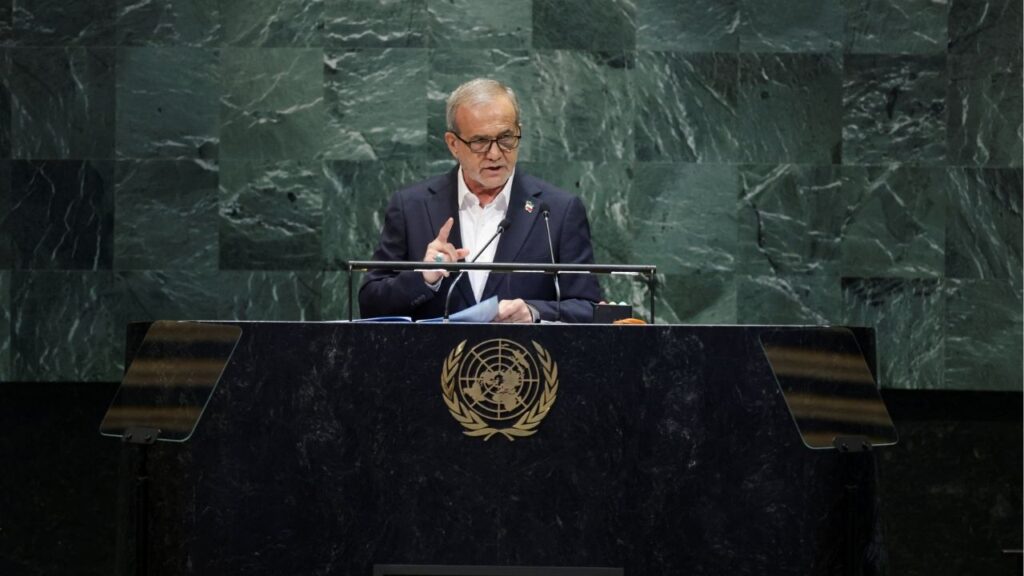Two Republicans argue that President Joe Biden is weak on China. They want the U.S. to adopt a Cold War-style containment policy toward China — a dangerous strategy that is bound to fail, opines Fareed Zakaria. (Doug Mills/The New York Times via AP, Pool)

- Matt Pottinger and Mike Gallagher propose adopting a Cold War-style containment policy toward China.
- Their comparison between China and the Soviet Union misses key differences in their economic structures and global integration.
- There are risks associated with a policy of containment against China, including potential isolation of the United States.
Share
|
Getting your Trinity Audio player ready...
|
These days, the world is on edge. Europe is grappling with its most significant land conflict since 1945, while the Middle East remains embroiled in turmoil.
However, these tensions could pale in comparison if another front were to ignite — this time in Asia, involving the United States and China.
Fortunately, recent months have seen a decrease in tensions as both Washington and Beijing work to stabilize their relationship under the Biden administration.
Nonetheless, Republican voices are calling for a change, writes Washington Post op-ed columnist Fareed Zakaria.
In an essay published in Foreign Affairs, Matt Pottinger and Mike Gallagher argue that the United States should adopt a Cold War-style containment policy toward China. They propose this strategy to achieve a victory that could prompt the Chinese people to seek new avenues of development and governance.
Pottinger, who served as Donald Trump’s senior advisor on China policy, mentioned on a recent CNN show that an effective U.S. strategy might ultimately lead to some form of regime change. The views of Pottinger and Gallagher, a former congressman who chaired the House Select Committee on China, are likely to influence future Republican administrations.
Pottinger and Gallagher criticize President Joe Biden’s approach of managing competition with China, suggesting it falls short. They advocate for a more aggressive Reagan-era policy to push China toward significant change ala the collapse of the Soviet Union. They also argue for increased friction and tension in the relationship.
Related Story: After Losing Population in Recent Years, California Grows Again. Is That a Good ...
However, China today is vastly different from the Soviet Union of past decades. Unlike the Soviet Union, China is the world’s second-largest economy and a major player in global trade.
China has a diverse economy, including a vibrant private sector that drives a significant portion of its exports. Despite recent challenges, China’s economy continues to grow steadily, making it a formidable global economic force.
“Were the United States to embark on a policy of containment, it would likely find itself alone,” opines Zakaria.
Comparing the Soviet Union and China
The comparison between the Soviet Union and China also highlights their differing economic structures. The Soviet Union heavily relied on natural resources, whereas China has a robust manufacturing sector and a growing presence in information technology.
The Soviet Union’s economic decline was exacerbated by falling oil prices, leading to its eventual collapse. In contrast, China’s economic diversity and integration into the global economy make it less susceptible to similar pressures.
Related Story: The Ideas Letter Explores Diverse Perspectives on Global Issues
Check out the full column by Fareed Zakaria: The Washington Post
RELATED TOPICS:
Categories

DHS Agent Killed US Citizen in March 2025, Records Show

Johannes Klaebo. Inevitable.

















